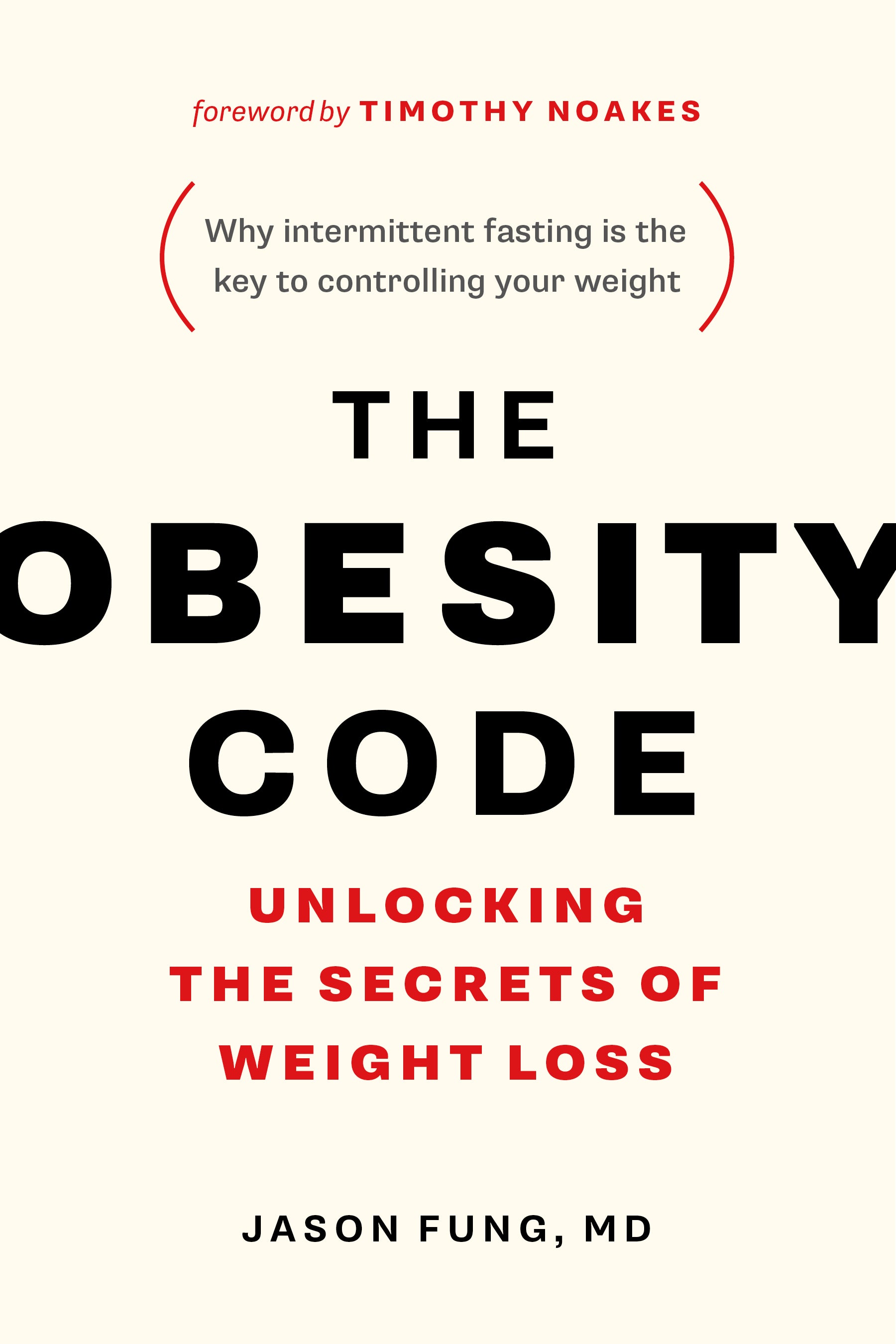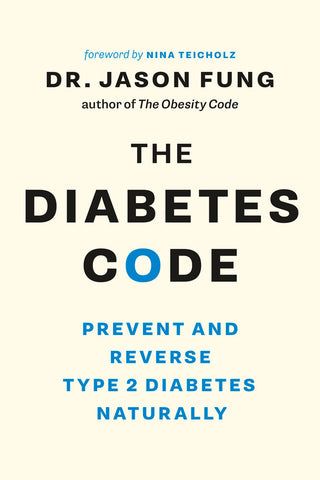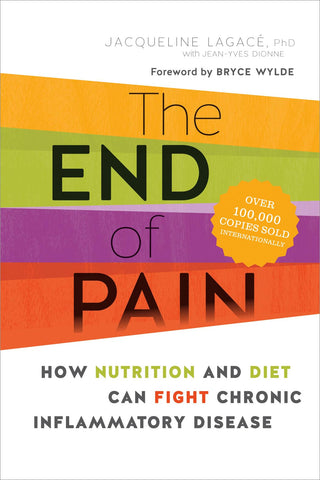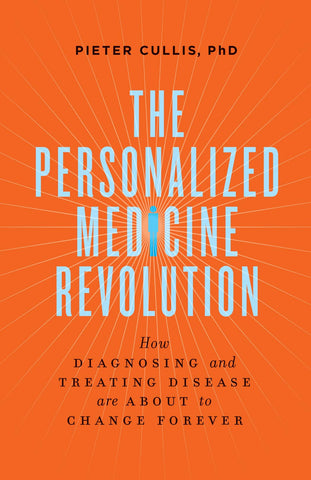The Obesity Code
Unlocking the Secrets of Weight Loss
- ISBN: 9781771641258
- Tags: Audiobook Available, Dr. Jason Fung, Dr. Timothy Noakes, Health & Wellness, Science, The Diabetes Code Cookbook,
- Dimensions: 6 x 9
- Published On: 03/04/2016
- 328 Pages
Audiobook Available (Details)
Reading Guide Available (Download/See All)
Why you’ve never been able to lose weight, and how that can change now
Everything you believe about how to lose weight is wrong. Weight gain and obesity are driven by hormones—in everyone—and only by understanding the effects of insulin and insulin resistance can we achieve lasting weight loss.
In this highly readable and provocative book, Dr. Jason Fung sets out an original, robust theory of obesity that provides startling insights into proper nutrition. In addition to his five basic steps, a set of lifelong habits that will improve your health and control your insulin levels, Dr. Fung explains how to use intermittent fasting to break the cycle of insulin resistance and reach a healthy weight—for good.
Dr. Jason Fung completed medical school at the University of Toronto before heading to the University of California, Los Angeles, to complete his fellowship in nephrology. Currently practicing in Toronto, Canada, as chief in the Department of Medicine in a major hospital, he founded the Intensive Dietary Management Clinic that provides a unique treatment focus for Type 2 diabetes and obesity.
Timothy Noakes is Professor of Exercise and Sports Science at the University of Cape Town. He started the Noakes Foundation in 2012, and has dedicated his life to opening people's eyes to the myth of low-fat eating and the nutritional and environmental crisis it has led us to.
"Not only full of insights but also surprisingly funny. Read it to understand why the world became fat, how to reverse the epidemic—and how to stay thin yourself."
—Andreas Eenfeldt, MD, Founder of Dietdoctor.com
"A fantastic book that exposes some of the world's most pervasive myths about obesity and weight management. A must read for anyone interested in the science of diet."
—Kris Gunnars, nutrition researcher
"Dr. Jason Fung’s explanation of insulin resistance and the accompanying insulin model of obesity is original, brilliant and game changing."
—Zoë Harcombe
"In The Obesity Code, Dr. Jason Fung triumphs in explaining the core underlying causes of obesity and manages to simplify it in a way that anybody can understand. If more doctors and people were able to understand these causes and implement Dr. Fung's actionable advice then we would be able to start reversing the obesity epidemic tomorrow."
—Sam Feltham, USA Today, World Fitness Elite Trainer of the Year
From the Introduction
The art of medicine is quite peculiar. Once in a while, medical treatments become established that don’t really work. Through sheer inertia, these treatments get handed down from one generation of doctors to the next and survive for a surprisingly long time, despite their lack of effectiveness. Consider the medicinal use of leeches (bleeding) or, say, routine tonsillectomy.
Unfortunately, the treatment of obesity is also one such example. Obesity is defined in terms of a person’s body mass index, calculated as a person’s weight in kilograms divided by the square of their height in meters. A body mass index greater than 30 is defined as obese. For more than thirty years, doctors have recommended a low-fat, caloriereduced diet as the treatment of choice for obesity. Yet the obesity epidemic accelerates. From 1985 to 2011, the prevalence of obesity in Canada tripled, from 6 percent to 18 percent.1 This phenomenon is not unique to North America, but involves most of the nations of the world.
Virtually every person who has used caloric reduction for weight loss has failed. And, really, who hasn’t tried it? By every objective measure, this treatment is completely and utterly ineffective. Yet it remains the treatment of choice, defended vigorously by nutritional authorities. As a nephrologist, I specialize in kidney disease, the most common cause of which is type 2 diabetes with its associated obesity. I’ve often watched patients start insulin treatment for their diabetes, knowing that most will gain weight. Patients are rightly concerned. “Doctor,” they say, “you’ve always told me to lose weight. But the insulin you gave me makes me gain so much weight. How is this helpful?” For a long time, I didn’t have a good answer for them.
That nagging unease grew. Like many doctors, I believed that weight gain was a caloric imbalance—eating too much and moving too little. But if that were so, why did the medication I prescribed—insulin—cause such relentless weight gain?
Everybody, health professionals and patients alike, understood that the root cause of type 2 diabetes lay in weight gain. There were rare cases of highly motivated patients who had lost significant amounts of weight. Their type 2 diabetes would also reverse course. Logically, since weight was the underlying problem, it deserved significant attention. Still, it seemed that the health profession was not even the least bit interested in treating it. I was guilty as charged. Despite having worked for more than twenty years in medicine, I found that my own nutritional knowledge was rudimentary, at best.
Treatment of this terrible disease—obesity—was left to large corporations like Weight Watchers, as well as various hucksters and charlatans mostly interested in peddling the latest weight-loss “miracle.” Doctors were not even remotely interested in nutrition. Instead, the medical profession seemed obsessed with finding and prescribing the next new drug:
- •You have type 2 diabetes? Here, let me give you a pill.
•You have high blood pressure? Here, let me give you a pill.
•You have high cholesterol? Here, let me give you a pill.
•You have kidney disease? Here, let me give you a pill.





